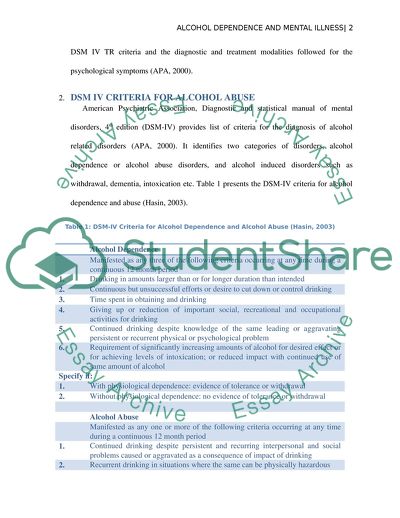Cite this document
(Alcohol Dependence Correlated to Mental Health Diagnosis Report Example | Topics and Well Written Essays - 1250 words, n.d.)
Alcohol Dependence Correlated to Mental Health Diagnosis Report Example | Topics and Well Written Essays - 1250 words. https://studentshare.org/psychology/1762590-alcohol-dependence-correlated-to-mental-health-diagnosis-according-to-dsm-iv-tr-criteria
Alcohol Dependence Correlated to Mental Health Diagnosis Report Example | Topics and Well Written Essays - 1250 words. https://studentshare.org/psychology/1762590-alcohol-dependence-correlated-to-mental-health-diagnosis-according-to-dsm-iv-tr-criteria
(Alcohol Dependence Correlated to Mental Health Diagnosis Report Example | Topics and Well Written Essays - 1250 Words)
Alcohol Dependence Correlated to Mental Health Diagnosis Report Example | Topics and Well Written Essays - 1250 Words. https://studentshare.org/psychology/1762590-alcohol-dependence-correlated-to-mental-health-diagnosis-according-to-dsm-iv-tr-criteria.
Alcohol Dependence Correlated to Mental Health Diagnosis Report Example | Topics and Well Written Essays - 1250 Words. https://studentshare.org/psychology/1762590-alcohol-dependence-correlated-to-mental-health-diagnosis-according-to-dsm-iv-tr-criteria.
“Alcohol Dependence Correlated to Mental Health Diagnosis Report Example | Topics and Well Written Essays - 1250 Words”. https://studentshare.org/psychology/1762590-alcohol-dependence-correlated-to-mental-health-diagnosis-according-to-dsm-iv-tr-criteria.


